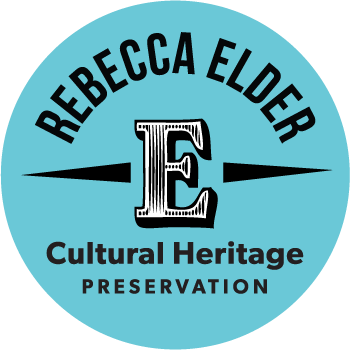Preservation Assessment Frequently Asked Questions
Rebecca is an approved CAP Assessor, and would love to talk with you about the options for a preservation assessment for your collection!
What is a preservation assessment?
A preservation assessment is a study of all of the factors affecting the life of your collections. The product is a written report detailing the condition of your collection and making recommendations for improvements. These recommendations usually range from small tweaks to existing procedures to large goals that may take several years to achieve.
Why does my institution need a preservation assessment?
A preservation assessment is useful for many situations. Most importantly, it provides guidance for collections care from an expert in the field. Other uses are:
· Providing justification for projects in grant applications
· Informing board members and administrators about collection needs
· Helping create preservation policy for the institution.
What topics does a preservation assessment consider?
This varies by the needs of the collection, but might include:
· Building condition
· Analysis of your climate and light levels
· Inspection for pests and mold
· Condition and types of boxes, folders and other housing materials
· Condition of each type of materials in your collection
· Security and emergency preparedness
· Staffing needs
· Space efficiency
· Reformatting
· Other topics as needed.
What is the assessment process like?
Most clients find the assessment process enjoyable and informative. First, a pre-visit questionnaire is sent prior to the site visit to help the client gather information necessary for the assessment and determine the client’s goals for the survey. For most collections, the consultant spends one or two days on site, although for very large collections, more time may be needed. While on site, the consultant meets with staff to discuss their concerns, examines the collection, and learns as much as possible about the institution’s preservation needs. The visit concludes with a wrap-up meeting that discusses the findings that will be presented in the report. After leaving the site, the consultant writes a draft of the report and presents it to the client for questions before finalizing the report.
What does the final report contain?
Your final report contains an in-depth analysis of the needs of your collections along with prioritized recommendations for improvement. The recommendations are created with the resources of the institution in mind, and goals are practical and attainable. The report is accompanied by a selection of resources to expand on topics covered in the report and provide additional guidance for the client.
Is funding available for assessments?
Many clients fund their assessments of humanities collections via Preservation Assistance Grants from the National Endowment from the Humanities. Private foundations also provide funding for assessment projects. Your local branch of the Foundation Center’s Funding Information Network (http://foundationcenter.org/fin/) can help you locate appropriate foundations to approach for funding.
The Collections Assessment for Preservation (CAP) program administered by the Foundation for the American Institute for Conservation provides subsidies for preservation assessments.
I have more questions.
Please get in touch with Rebecca at elderpreservation@gmail.com or 512.699.3494.
